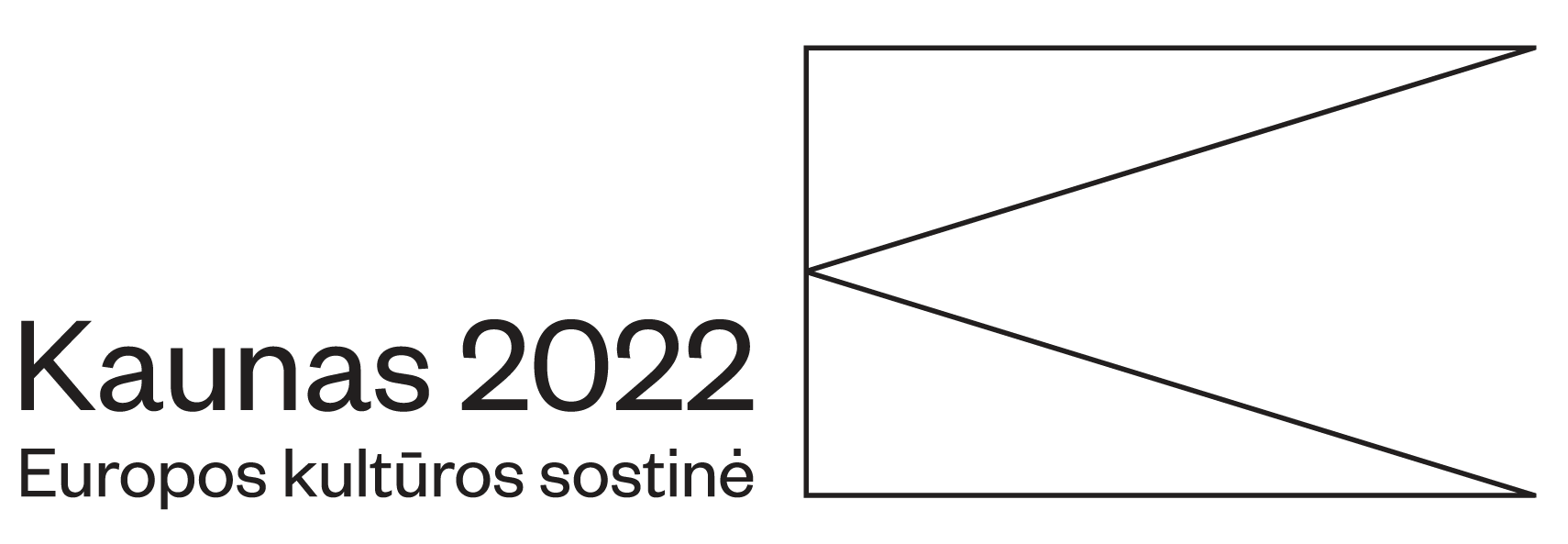
Musical duo Golden Parazyth (Giedrius Širka and Aurimas Vilkišius) is convinced that Kaunas could become a real cultural Mecca. The city simply needs to use the potential it already has. A conversation with Kaunas 2022’s ambassadors about the search for the dialogue between politicians and cultural agents, the challenges that contemporary Lithuanian musicians meet, and timeless city symbols.
Why did you choose M. K. Čiurlionis National Museum of Arts for our meeting?
Giedrius: I used to live on a quiet street next to this museum for some time. While studying in Kaunas, I met Aurimas here. Aurimas lived on a hill, and I lived at the foot of it on E. Ožeškienė street. He would come down the hill, and we would together go to university. I used to visit the museum during the breaks between my lectures because I really enjoyed looking at M.K. Čiurlionis pieces. It was always calm here, and this corridor became sort of meditative place for me.
The beginnings of Golden Parazyth are in Kaunas. What is the musical culture in this city?
Giedrius: People think that I am from Kaunas and present us as a duo from Kaunas, despite the fact that we only started our musical career here, in 2006. Kaunas audience is very peculiar and unpredictable. When you have a concert in Vilnius and Klaipėda, you can always expect a big audience. Meanwhile, Kaunas audience is different. Sometimes people come to an event, and the next time they just don’t. Kaunas is Lithuania’s second largest city, but sometimes it’s complicated to gather 200 or 300 people.
Many event organisers are afraid to invite world-famous performers – especially the members of the underground culture – to Kaunas because nobody knows whether the event will attract enough people. There are a lot of students and young people in Kaunas, so the city could be a real cultural mecca. However, a large section of young people settles for a simple, often inferior entertainment.
Perhaps Kaunas lacks cultural spaces for events?
Giedrius: Local people have a joke that Kaunas ends at the Kaunas Castle roundabout, next to Jonava street. A lot of events take place in the Old Town. However, only half a kilometre away there is almost no cultural life. Most of the events take place in the city centre. Meanwhile, micro-districts – the so called dormitory districts – keep sleeping. M. K. Čiurlionis Art Museum comes to mind again. Many Kaunas students have never been here, they have never visited War Museum or Tadas Ivanauskas Museum as well. They are not interested. That’s how a community with a poor cultural offer emerges.
You are the ambassadors of Kaunas 2022. How could music help strengthen the city community?
Giedrius: With music, we can have an immense change. We need to find the ways to engage society. That requires the dialogue between subdistricts and public figures such as musicians. Short-term projects, sporadic concerts organised by municipalities cannot make a difference.
Aurimas: Today, music and arts are nothing more than entertainment. Earlier, they went hand in hand with historical events. Creativity was important and enabled people to express a particular position. We need to bring this link back.
What is your opinion about musical projects open for society: such as „Gatvės muzikos diena”(Street Music Day), „Romuvos pasažas” (Romuva’s Passage), „Operetė Kauno pilyje” (Operetta in Kaunas Castle), etc?
Giedrius: Romuva is a bohemian icon, so the activities there are worthy of attention. However, „Gatvės muzikos diena“ resembles chaos rather than cultural injection. It is great that people have an opportunity to listen to music once they step outside; however, this event has no long-term impact on city life. We need more events with social basis – similar to those of Romuva. To awaken Kaunas residents and encourage them to attend public events, you need to juggle the symbols like Merkurijus, Romuva, Kaunas Castle as it is for them that we love this city. We value what is here for a long time, what has matured here.
If you could give Kaunas residents musical injection, based not only on a vain entertainment, what would it be?
Giedrius: I would produce a play or musical performance that would be shown every season, both in closed and public spaces of the city. I would play with the city’s symbols and history in contemporary context. I believe this would be engaging for the audiences of various age groups and cultural tastes.
Aurimas: Interactivity is essential here. We need to introduce people to music, contemporary production technologies, instruments, and the way they work.
Giedrius: It is spine that keeps a person alive. I think of Laisvės (Liberty) Avenue and Vilnius Street as of Kaunas spine. Every time, coming here, I would like to find a place full of art galleries, clubs, interactive spots where young people meet and which are full of culture, and where you can feel yourself a part of the city. Every one of us is a significant piece of Kaunas’s puzzle, and without it, the city would not exist.
Video: Marius Paplauskas

